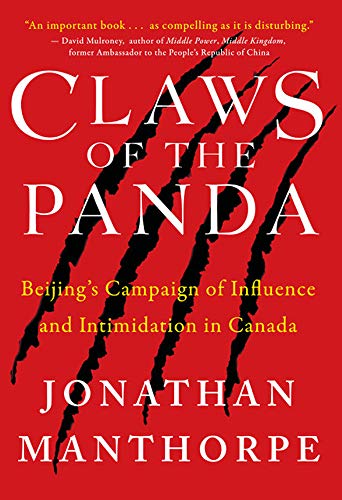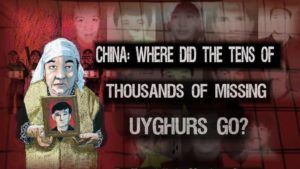
China’s Communist authorities are employing repressive tactics honed at home to harass exiles and minority activists in the latest manifestation of Beijing’s sharp power.
As China extends its influence around the globe, it has mastered the art of soft power, establishing Confucius Institutes on Western college campuses and funding ports and power plants in developing countries. But building up is only one prong of the Chinese strategy. The other is knocking down. And few know this better than Sheng Xue, The New York Times reports:
Sheng Xue left China for Canada after the 1989 Tiananmen Square uprising and became a prominent advocate for democracy in China. But for over six years, she has been the victim of a broad campaign to discredit her reputation — including fake photos of her online and lurid stories about her sex life — that experts suspect is being orchestrated by the Chinese Communist Party.
“This is a textbook destabilization of the exile movement,” said Nicholas Bequelin, Amnesty International’s regional director for East Asia. “Since the early 1990s, China has understood the best way to neutralize this group and prevent them from essentially getting organized is to ensure they have no undisputed figurehead.”
 Chinese officials pressured a Montreal-based human rights research institute affiliated with Concordia University to cancel a conference featuring a prominent exiled Uighur leader, Dolkun Isa, President of the World Uyghur Congress,* CBC reports:
Chinese officials pressured a Montreal-based human rights research institute affiliated with Concordia University to cancel a conference featuring a prominent exiled Uighur leader, Dolkun Isa, President of the World Uyghur Congress,* CBC reports:
Kyle Matthews, executive director of the Montreal Institute for Genocide and Human Rights Studies (MIGS) at Concordia University, said he received an email from the Chinese consul general in Montreal on Monday, asking him for an urgent meeting to discuss a planned conference on the Uighur minority in China. While he chose to ignore the request and went ahead with the conference on Tuesday as planned, Matthews said he later found out that the consul general was also putting pressure on different people in Montreal to get Concordia University to annul the event.
“I think that’s problematic, it goes against freedom of speech, it goes against the right of universities to talk about complex issues and contemporary issues,” Matthews told Radio Canada International.

Change.org
“Before the event, we started to see reports in the media that showed [the] Chinese government and some Chinese students disrupting any events about human rights abuses involving the Uighur or the Tibetans,” Matthews told The Concordian: We were kind of concerned about that and thought our event would get cancelled.”
Jonathan Manthorpe‘s recently published Claws of the Panda (above) documents China’s influence campaigns.
UN diplomats and activists describe Chinese pressure and ‘threats’ over Uyghur event at UN rights council, Agence France-Presse adds:
The US-organised event on March 13 about China’s treatment of Uygurs in Xinjiang province attracted intense lobbying from China’s mission. A letter signed by China’s Ambassador Yu Jianhua told countries not to take part ‘in the interest of our bilateral relations’
 Human Rights Watch (HRW) charged that the Chinese mission in Geneva had sent a letter to a number of missions urging them to stay away from a US-organised event on March 13 about China’s treatment of Uighurs and other Muslim minorities in Xinjiang province.
Human Rights Watch (HRW) charged that the Chinese mission in Geneva had sent a letter to a number of missions urging them to stay away from a US-organised event on March 13 about China’s treatment of Uighurs and other Muslim minorities in Xinjiang province.
Taiwan plans to ban the video streaming services of Chinese-owned technology companies, in the latest move by the government in Taipei to counter the spread of false information online and curb Beijing’s efforts to influence Taiwanese politics, the FT adds:
The decision would apply to services such as Baidu’s iQiyi platform, which already operates in Taiwan, and fend off an anticipated market entrance from Tencent Video. It follows allegations of Beijing’s involvement in the creation of disinformation and spreading Chinese propaganda undermining President Tsai Ing-wen and candidates from her ruling Democratic Progressive party in the lead-up to November’s local elections. It comes as Singapore on Monday published far-reaching draft legislation to tackle the spread of false information online.
Disinformation was “rampant” in Taiwan and the country had become a testing ground for China’s cyber warfare, said J Michael Cole, a Taipei-based fellow at the University of Nottingham.
*A partner of the National Endowment for Democracy.







